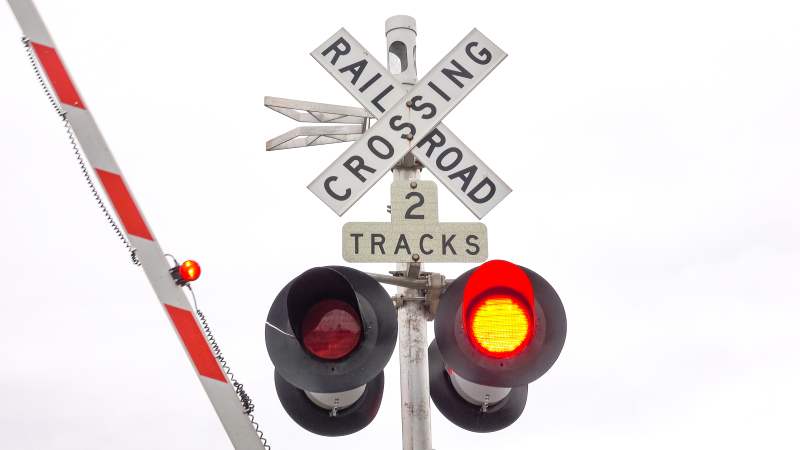
By Dan Trevas | Court News Ohio
Federal law prevents enforcement of an Ohio law against trains blocking railroad crossings for more than five minutes, the Supreme Court of Ohio ruled today.
A divided Supreme Court ruled that the Marysville Municipal Court roperly dismissed five charges against CSX Transportation for violating a state law that prohibits a stopped train from blocking railroad crossings. The Court ruled that because the state law “regulates, manages, and governs rail traffic,” it is in conflict with federal law covering the same subject and cannot be enforced.
In the Court’s lead opinion, Justice Sharon L. Kennedy noted that federal law allows states to regulate some aspects of railroad safety. However, the Ohio antiblocking law, R.C. 5589.21, does not address making train operations safer, and the federal government has preempted state laws that regulate the time trains may stop on the tracks.
“We acknowledge the significant danger to the public that is created when stopped trains obstruct the movement of first responders across railroad tracks. However, the regulation of railroad transportation is a matter of federal law, and the federal government alone has the power to address the threat to public safety caused by blocked crossings,” she wrote.
Justice R. Patrick DeWine joined Justice Kennedy’s opinion.
In a concurring opinion, Justice Patrick F. Fischer maintained that R.C. 5589.21 is a railroad safety law. However, states can adopt railroad safety laws only for areas of rail transportation not addressed by federal law. He noted while there is no specific federal law or regulation regarding the blocking of crossings, the federal government has comprehensive regulations for the safety of railroad grade crossings. Because blocking the crossings concerns grade-crossing safety, the Ohio law is not permitted, he concluded.
Chief Justice Maureen O’Connor joined Justice Fischer’s opinion.
Justice Melody Stewart concurred in judgment only.
In a dissenting opinion, Justice Jennifer Brunner stated that all seven justices agree that no federal law regulates blocked railroad crossings. Without a federal regulation, states can adopt their own antiblocking laws, she wrote. She noted that Ohio has had some form of law against blocking railroad crossings since 1853.
Justice Michael P. Donnelly joined Justice Brunner’s dissent.

Read this and more at Court News Ohio

